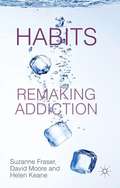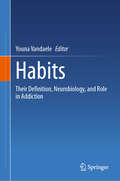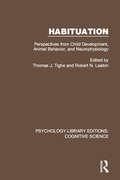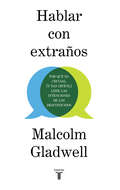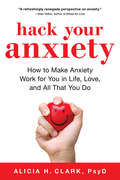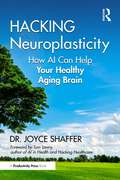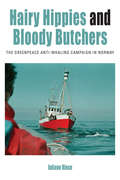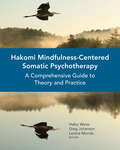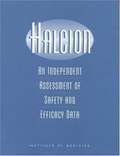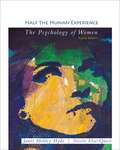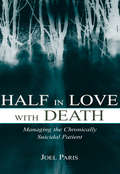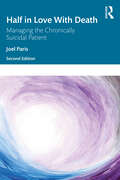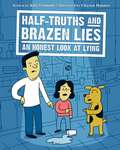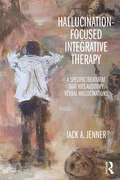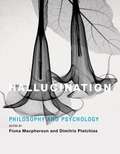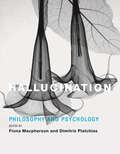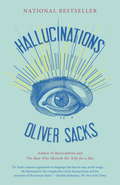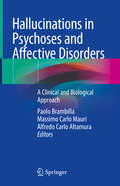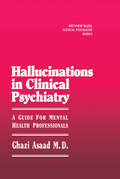- Table View
- List View
Habits: Remaking Addiction
by David Moore Suzanne Fraser Helen KeaneWhat is 'addiction'? What does it say about us, our social arrangements and our political preoccupations? Where is it going as an idea and what is at stake in its ongoing production? Drawing on ethnographic research, interviews and media and policy texts, this book traces the remaking of addiction in contemporary Western societies.
Habits: Their Definition, Neurobiology, and Role in Addiction
by Youna VandaeleThis book explores the multiple facets of habit from diverse and complementary theoretical frameworks. It provides a complete overview of the cognitive, computational, and neural processes underlying the formation of distinct forms of habit. The objective of the book is to cover (1) the multiple definitions of the habit construct and the relation between different habit-related concepts, (2) the underlying brain circuits of habits, and (3) the possible involvement of habits in psychiatric disorders such as alcohol and substance use disorder. This book will be of interest to all researchers in behavioral and computational neuroscience, psychology, and psychiatry who are interested in associative learning and decision making, under normal and pathological conditions.
Habituation: Perspectives from Child Development, Animal Behavior, and Neurophysiology (Psychology Library Editions: Cognitive Science)
by THOMAS J. TIGHE AND ROBERT N. LEATONOriginally published in 1976, this volume is based on a conference held in 1974. The purpose of the conference was to foster communication between those researchers studying habituation or closely related processes in children and those studying habituation at the level of neurophysiology and animal behaviour. Within each of these groups there was burgeoning interest in habituation, yet there had been little, if any, interaction between them. Overall, this volume provides a medium for cross-fertilization between animal-neurophysiological and developmental research on habituation, highlighting some of the current empirical and theoretical concerns within each area at the time. While other volumes may have provided more comprehensive and detailed reviews of aspects of habituation, the juxtaposition of developmental and animal neuro-physiological research provided in this text was unique in the literature at the time.
Habla Inversa Teoría y Práctica: ‘Como usar tu mente Inconsciente para predecir el resultado de eventos futuros’
by Joshua SchmudeSoy un Analista del Habla Inversa certificado, formado por el creador de la Teoría del Habla Inversa, David John Oates. Este libro enseña a la gente cómo utilizar sus propias inversiones del habla para predecir el resultado de los acontecimientos futuros y el uso de metodologías de investigación cualitativa, explorar las capacidades precognitivas del alma humana.
Hablar con extraños: Por qué es crucial (y tan difícil) leer las interacciones de los desconocidos
by Malcolm GladwellVUELVE EL MEJOR GLADWELL, autor de El punto clave, Inteligencia intuitiva y Fuera de serie. «Si puedo convencerte de una única cosa con este libro, que sea esta: los desconocidos no son simples.» ¿Cómo pudo un espía pasar años sin ser detectado en los más altos niveles del Pentágono? ¿Qué llevó a Neville Chamberlain a creer que podía confiar en Adolf Hitler? ¿Qué tienen en común esos casos con el engaño de Bernie Madoff, el juicio de Amanda Knox, el suicidio de Sylvia Plath o la comedia de televisión Friends? Cuando interactuamos con desconocidos, a menudo las cosas no salen bien, en parte porque creemos adivinar las intenciones de los demás basándonos en pistas terriblemente endebles. En Hablar con extraños, Malcolm Gladwell, el autor que ha conquistado a una legión de admiradores con su particular manera de ver el mundo, entrevista a toda una serie de personas brillantes, ofrece un arsenal de ejemplos divertidos, contraintuitivos y convincentes, extrae de ellos ideas poderosas y las condimenta con abundantes datos inolvidables. Al mostrarnos por qué se nos da tan mal leer entre líneas, revela las claves para lidiar mejor con los desconocidos en nuestra vida. En este nuevo viaje a lo inesperado, Gladwell nos ofrece nuevos y valiosos descubrimientos sobre nosotros mismos, pasados por el prisma de la historia, la psicología y la sociología. La crítica ha dicho:«Excelente escritura, estructura magistral, datos llamativos elegantemente reutilizados. La fórmula que hizo que sus libros anteriores fueran éxitos.»Financial Times «Irresistible, y dará que hablar. En un momento de máxima polarización, un libro que examina el modo en que fallamos a la hora de comunicarnos no podría ser más oportuno. Se devora como si fuera un thriller.»Chris Barton, Los Angeles Times «Hay un momento de la lectura en el que incluso el escéptico comienza a sentir que nos estamos equivocando en todo y que quizá este tal Gladwell ha dado con algo... Hablar con extraños es el más sólido de sus títulos.»Amy Chozick, The New York Times «Gladwell ofrece poderosos consejos para entender mejor a los otros. Defiende brillantemente que nadie es transparente y la necesidad de comprender que los comportamientos dependen de circunstancias invisibles.»People «Los casos que analiza Galdwell son sensacionales. Repleto de fascinantes anécdotas, de las cuales extrae pequeñas píldoras sobre cómo relacionarnos con los desconocidos.»Maggie Taft, Booklist «Intelectualmente estimulante, otro tour de force de Gladwell. Los lectores que esperen una nueva lectura adictiva del tipo "nada-de-lo-que-dabas-por-sentado-es-así" no se verán defraudados.»Kirkus Reviews «Fascinante yoportuno. Gladwell escribe con su característica prosa colorida, fluida y accesible.»Publishers Weekly «Adoro este libro. No solo cambia el modo en que vemos a los extraños, sino también cómo entendemos las noticias, el mundo y a nosotros mismos. Transformador.»Oprah Winfrey «Uno de los mejores observadores de su generación, un pensador de amplio espectro que nos ayuda a comprender la condición humana.»Bob Brisco, WebMD Magazine «Gladwell tiene un inmenso talento: una mente aguda, original e inquisitiva, la capacidad de desenterrar información que otros no han considerado y darle un sentido más amplio. Su habilidad narrativa es inigualable.»Stephen Galloway, The Hollywood Reporter
Hack Your Anxiety: How to Make Anxiety Work for You in Life, Love, and All That You Do
by Jon Sternfeld Alicia H. ClarkWhat if the way we're thinking about anxiety is off base? What if there's something about anxiety that can be used for you instead of against you?In this revolutionary new book, Dr. Alicia H. Clark recognizes anxiety as an unsung hero in the path to success and well-being. Anxiety is a powerful motivating force that can be harnessed to create a better you, if you've got the right tools. Hack Your Anxiety provides a road map to approach anxiety in a new —and empowering — light.Weaving together modern neuroscience, case studies, interviews, and personal anecdotes, Hack Your Anxiety demonstrates how anxiety can be reclaimed as a potent force for living our best lives.
Hack: Stories from a Chicago Cab (Chicago Visions And Revisions Ser.)
by Dmitry SamarovCabdrivers and their yellow taxis are as much a part of the cityscape as the high-rise buildings and the subway. We hail them without thought after a wearying day at the office or an exuberant night on the town. And, undoubtedly, taxi drivers have stories to tell—of farcical local politics, of colorful passengers, of changing neighborhoods and clandestine shortcuts. No one knows a city’s streets—and thus its heart—better than its cabdrivers. And from behind the wheel of his taxi, Dmitry Samarov has seen more of Chicago than most Chicagoans will hope to experience in a lifetime. An artist and painter trained at the School of the Art Institute of Chicago, Samarov began driving a cab in 1993 to make ends meet, and he’s been working as a taxi driver ever since. In Hack: Stories from a Chicago Cab, he recounts tales that will delight, surprise, and sometimes shock the most seasoned urbanite. We follow Samarov through the rhythms of a typical week, as he waits hours at the garage to pick up a shift, ferries comically drunken passengers between bars, delivers prostitutes to their johns, and inadvertently observes drug deals. There are long waits with other cabbies at O’Hare, vivid portraits of street corners and their regular denizens, amorous Cubs fans celebrating after a game at Wrigley Field, and customers who are pleasantly surprised that Samarov is white—and tell him so. Throughout, Samarov’s own drawings—of his fares, of the taxi garage, and of a variety of Chicago street scenes—accompany his stories. In the grand tradition of Nelson Algren, Saul Bellow, Mike Royko, and Studs Terkel, Dmitry Samarov has rendered an entertaining, poignant, and unforgettable vision of Chicago and its people.
Hacking Neuroplasticity: How AI Can Help Your Healthy Aging Brain
by Joyce ShafferNeuroplasticity is the ability of neural networks in the brain to change through growth and reorganization. It is when the brain is rewired to function in some way that differs from how it previously functioned.How does aging affect neuroplasticity? As we grow older, plasticity decreases to stabilize what we have already learned. What influence does the aging process have on memory? Forgetfulness can be a normal part of aging. As people get older, changes occur in all parts of the body, including the brain. As a result, some people may notice that it takes longer to learn new things, they don't remember information as well as they did, or they lose things like their glasses. This book on evolving neuroscience is unique in its lifespan focus on driving neuroplasticity in a positive direction to influence the Flynn effect of increasing human intelligence as the preferred way to prevent, delay onset, and/or reverse dementia. It considers potential impact from the first moments of life through end of life. It includes intergenerational activities. Its inclusion of centenarians and supercentenarians provides examples of “Super Agers” who have maintained and/or increased neurocognitive capacity, often with a health span that approximated their vigorous longevity. It discusses the use of the Artificial Intelligence (AI) revolution to refine, personalize, and broaden our global reach to enhance the Flynn effect as the preferred effort to improve global statistics on neurocognitive functioning at any age. Driving neuroplasticity in a positive direction at all ages is urgent.With this book’s focus on evidence-based interventions at any age which can have physical, emotional, neurobiological, neurochemical, immunological, and social health benefits, it is a unique overview and application of evolving neuroscience to address the UN/WHO Decade of Action for Healthy Ageing for All.
Hairy Hippies and Bloody Butchers: The Greenpeace Anti-Whaling Campaign in Norway
by Juliane RieseIn the popular imagination, no issue has been more closely linked with the environmental group Greenpeace than whaling. Opposition to commercial whaling has inspired many of the organization's most dramatic and high-profile "direct actions"-as well as some of its most notable failures. This book provides an inside look at one such instance: Greenpeace's decades-long campaign against the Norwegian whaling industry. Combining historical narrative with systems-theory analysis, author Juliane Riese shows how the organization's self-presentation as a David pitted against whale-butchering Goliaths was turned on its head. She recounts how opponents successfully discredited the campaign while Greenpeace struggled with internal disagreements and other organizational challenges, providing valuable lessons for other protest movements.
Hakomi Mindfulness-Centered Somatic Psychotherapy: A Comprehensive Guide to Theory and Practice
by Greg Johanson Lorena Monda Halko WeissThe authoritative text on Hakomi methods, theory, and practice. Hakomi is an integrative method that combines Western psychology and body-centered techniques with mindfulness principles from Eastern psychology. This book, written and edited by members of the Hakomi Institute-- the world's leading professional training program for Hakomi practitioners--and by practitioners and teachers from across the globe, introduces all the processes and practices that therapists need in order to begin to use this method with clients. The authors detail Hakomi's unique integration of body psychotherapy, mindfulness, and the Eastern philosophical principle of non-violence, grounding leading-edge therapeutic technique in an attentiveness to the whole person and their capacity for transformation.
Halal Sex: The Intimate Lives of Muslim Women in North America
by Sheima BenembarekAn unprecedented glimpse into the sex lives of female and gender-expansive Muslims living across Canada and the United States.In the Muslim world, sex is permissible (or halal) only within the confines of marriage. Outside of wedlock, the act is considered haram, a sin of the faith. Girls are taught to protect their virginity; their mothers, if not forgoing &“the talk&” altogether, obscure the facts with elliptical language and metaphors.So, what happens when immigrants and the children of immigrants set about pursuing an open and active sex life on a more sexually liberated continent, amid western peers and attitudes? The six deeply personal stories in Halal Sex attempt to answer this question, bringing a hushed conversation out into the open.Within these pages you&’ll meet Azar, a non-binary trans Sufi; Bunmi, a Nigerian navigating shame and Tinder; Eman, a lesbian stand-up comic in an interfaith marriage; Taslim, a virgin in her forties struggling to erect healthy boundaries; and Khadijah, an exotic dancer and sex worker.With great empathy, Sheima Benembarek makes space for the honesty and vulnerability of each participant and handles their stories with gentleness and care. What emerges is a tapestry of a diverse Islam—encompassing a wide variety of cultural and religious and socioeconomic backgrounds—and a frank, feminist contribution to the advancement of Muslim sexual education and pleasure.
Halcion: An Independent Assessment of Safety and Efficacy Data
by Committee on Halcion: An Assessment of Data Adequacy ConfidenceRegulatory agencies within the United States and the United Kingdom, among several other countries, have reviewed extensively the safety and efficacy of Halcion (triazolam)--a once commonly used hypnotic drug. Concerns began to emerge about the safety of Halcion when a Dutch physician reported a possible link between it and a syndrome that included such effects as depression, amnesia, hallucinations, and increased anxiety. In addition, in 1991 its manufacturer, Upjohn, noted that "errors had been identified in a report of one of the clinical studies included in the original" application for approval. Since then, the drug has been removed from the market in several countries, whereas in the United States and Canada, the drug's labeling has been modified to reduce the recommended dose and duration of treatment and to heighten awareness of possible side effects. Yet different data and analyses have resulted in conflicting messages that are difficult to reconcile and interpret. In response to a request from the Food and Drug Administration to resolve these controversial issues related to the safety and efficacy of Halcion, this IOM book assesses the adequacy of the drug's clinical trials; the quality and quantity of data on adverse reactions; overall confidence in the data on effectiveness, adverse events, and side effects at different doses; and whether additional studies are needed.
Half The Human Experience: The Psychology of Women
by Janet Shibley Hyde Nicole Else-QuestOffering a clear, comprehensive presentation, HALF THE HUMAN EXPERIENCE, 8E delivers an authoritative analysis of classical and the most current research from a feminist psychology viewpoint. It thoroughly examines the balance of cultural and biological similarities--and differences--between the genders, noting how these characteristics may affect issues of equality as well as how men and women behave toward one another. It provides a strong foundation for understanding the influences of gender, race, and ethnicity on psychology and society, as well as strategies for thinking critically about pop culture versus academic feminism as it relates to psychology.
Half a Life
by Darin StraussIn this powerful, unforgettable memoir, acclaimed novelist Darin Strauss examines the far-reaching consequences of the tragic moment that has shadowed his whole life. In his last month of high school, he was behind the wheel of his dad's Oldsmobile, driving with friends, heading off to play mini-golf. Then: a classmate swerved in front of his car. The collision resulted in her death. With piercing insight and stark prose, Darin Strauss leads us on a deeply personal, immediate, and emotional journey--graduating high school, going away to college, starting his writing career, falling in love with his future wife, becoming a father. Along the way, he takes a hard look at loss and guilt, maturity and accountability, hope and, at last, acceptance. The result is a staggering, uplifting tour de force.Look for special features inside, including an interview with Colum McCann.Join the Circle for author chats and more.RandomHouseReadersCircle.comFrom the Trade Paperback edition.
Half in Love With Death: Managing the Chronically Suicidal Patient
by Joel ParisHalf in Love With Death presents a new way for therapists to manage chronically suicidal patients, an incredibly challenging task for clinicians and one where an insufficient amount of literature exists to guide professionals. Author Joel Paris suggests an approach that defies conventional wisdoms about whether suicide can be predicted or prevented. He asserts that managing chronically suicidal patients begins with tolerating suicidality, understanding the inner world of patients, avoiding repeated hospitalizations, and focusing on life situations that maintain suicidal ideas and behaviors. Each chapter in the book develops a theoretical perspective based on empirical data, and many are illustrated by clinical examples. Topics addressed throughout the text include:*distinctions among various types of suicidality;*the inner world of the chronically suicidal patient, with a particular focus on pain, emptiness, and hopelessness;*the relationship between chronic suicidality and personality disorders, especially the category of borderline personality;*the effectiveness of psychotherapy and pharmacotherapy for chronically suicidal patients; and*the risks of litigation in managing this patient population. This volume is a crucially important resource for clinicians who treat chronically suicidal patients, as it fills a gap in existing literature and provides enlightened guidelines that stem from a large body of research in the field.
Half in Love with Death: Managing the Chronically Suicidal Patient
by Joel ParisThe second edition of Half in Love with Death gives therapists new tools to help manage chronically suicidal patients. Clinicians will learn how to tolerate suicidality, understand the inner world of patients, avoid repeated hospitalizations, and focus on life situations that maintain suicidal ideas and behaviors. This new edition includes a number of major updates and a new chapter on the epidemiology of suicidality. Each chapter develops a theoretical perspective based on empirical data, and many are illustrated by clinical examples. Topics addressed throughout the text include: Distinctions among various types of suicidality The inner world of the chronically suicidal patient, with a particular focus on pain, emptiness, and hopelessness The relationship between chronic suicidality and personality disorders, especially the category of borderline personality The effectiveness of psychotherapy and pharmacotherapy for chronically suicidal patients The risks of litigation in managing this patient population This is a crucially important resource for clinicians who treat chronically suicidal patients, one that provides enlightened and evidence-based guidelines.
Half-truths And Brazen Lies
by Kira Vermond Clayton Hanmer<P>Do you believe in telling the truth? Sure you do. But even that's a lie -- because we all lie. Whether to protect a friend, to make someone feel better, or to avoid telling even bigger lies later, lying is actually central to human nature. Usually we're taught that lying is bad, and that's that. But in reality, it's rarely so black and white. <P>Kira Vermond's latest book answers questions like: Why do we lie? What types of lies are there? What are the consequences of lying? What methods are used to detect lies? And when is it okay or even good to lie? <P>From forgeries and hoaxes to plagiarism and placebos, Half-Truths and Brazen Lies offers historical anecdotes, scientific studies, and sociocultural analyses to help unpack the complex world of untruths. Told in a witty, conversational tone with an index and full-color illustrations, the book takes a thorough, nuanced approach to a fascinating aspect of human behavior.
Halfway Heaven: Diary Of A Harvard Murder
by Melanie ThernstromA few days before the end of spring term, an anonymous note arrived atThe Harvard Crimson. It contained a photograph of a student and a typed message: "Keep this picture. There will soon be a very juicy story involving this woman. " Now, the critically acclaimed author of The Dead Girl reveals the never-before-told story of two girls--one from Ethiopia, the other from Vietnam--for whom admission to Harvard was like "halfway heaven," the stepping stone to the American Dream that would ensure success for them and their families; and how they met instead with the darkest of all fates: a tragedy that might have been prevented. Based on Melanie Thernstrom's article in The New Yorker, here is the complete story of an unfathomable murder/suicide that shocked the country--and a groundbreaking expose of one of America's most distinguished universities. Drawing on the astonishing diaries kept by the murderer, Thernstrom reconstructs the inner life of a deeply troubled girl, struggling against isolation and depression, uncannily self-aware, and desperate for help. Sifting through layers of responsibility and silence, Thernstrom has pieced together a story that points back to Harvard and its calculated efforts to whitewash the story, and to protect and promote its distinguished reputation at the cost of its own student body. A work of dazzling investigative journalism and literary pathos,Halfway Heavenraises profound questions about the nature of attachment, obsession, female friendship, and the power of loneliness to transform love into destruction.
Hallucination-focused Integrative Therapy: A Specific Treatment that Hits Auditory Verbal Hallucinations
by Jack A. JennerHallucination-focused Integrative Treatment (HIT) is a specific treatment for auditory verbal hallucinations which integrates techniques from CBT, systems therapy, psychoeducation, coping training, rehabilitation and medication. It emphasises active family involvement, crisis intervention when required and specialised motivational strategies. In clinical trials HIT has been proven to have longer lasting and wider ranging effects than other therapies, high patient satisfaction scores and a low drop-out rate. In Hallucination-focused Integrative Therapy, Jack Jenner presents a full manual for using HIT with patients. Divided into five parts, the book offers a clear and straightforward explanation of each aspect of the treatment. Part One introduces auditory verbal hallucinations in their social and historical context. Part Two explains the need for an integrative approach to treating them and sets out the eleven-step diagnostic procedure. Part Three describes the treatment in full, including motivational strategies, the constituent modules and how to integrate them, flexible implementation of a tailor-made procedure and its overall effectiveness. It also demonstrates the use of HIT with specific patient groups, including those suffering from trauma, children and adolescents, those who are suicidal and those with learning difficulties. Part Four examines other hallucination-focused therapies. Finally, Part Five covers insight-oriented psychotherapies. The book also includes several appendices of supplementary material which enhance the content. Illustrated throughout with case studies and clinical material, Hallucination-focused Integrative Therapy will be of interest to psychiatrists, psychologists, psychiatric nurses and social workers working with patients who experience auditory verbal hallucinations.
Hallucination: Philosophy and Psychology
by Fiona Macpherson Dimitris PlatchiasReflection on the nature of hallucination has relevance for many traditional philosophical debates concerning the nature of the mind, perception, and our knowledge of the world. In recent years, neuroimaging techniques and scientific findings on the nature of hallucination, combined with interest in new philosophical theories of perception such as disjunctivism, have brought the topic of hallucination once more to the forefront of philosophical thinking. Scientific evidence from psychology, neuroscience, and psychiatry sheds light on the functional role and physiology of actual hallucinations; some disjunctivist theories offer a radically new and different philosophical conception of hallucination. This volume offers interdisciplinary perspectives on the nature of hallucination, offering essays by both scientists and philosophers. Contributors first consider topics from psychology and neuroscience, including neurobiological mechanisms of hallucination and the nature and phenomenology of auditory-verbal hallucinations. Philosophical discussions follow, with contributors first considering disjunctivism and then, more generally, the relation between hallucination and the nature of experience. ContributorsIstvan Aranyosi, Richard P. Bentall, Paul Coates, Fabian Dorsch, Katalin Farkas, Charles Fernyhough, Dominic H. ffytche, Benj Hellie, Matthew Kennedy, Fiona Macpherson, Ksenija Maravic da Silva, Peter Naish, Simon McCarthy-Jones, Matthew Nudds, Costas Pagondiotis, Ian Phillips, Dimitris Platchias, Howard Robinson, Susanna Schellenberg, Filippo Varese
Hallucination: Philosophy and Psychology
by Fiona Macpherson Dimitris PlatchiasScientific and philosophical perspectives on hallucination: essays that draw on empirical evidence from psychology, neuroscience, and cutting-edge philosophical theory.Reflection on the nature of hallucination has relevance for many traditional philosophical debates concerning the nature of the mind, perception, and our knowledge of the world. In recent years, neuroimaging techniques and scientific findings on the nature of hallucination, combined with interest in new philosophical theories of perception such as disjunctivism, have brought the topic of hallucination once more to the forefront of philosophical thinking. Scientific evidence from psychology, neuroscience, and psychiatry sheds light on the functional role and physiology of actual hallucinations; some disjunctivist theories offer a radically new and different philosophical conception of hallucination. This volume offers interdisciplinary perspectives on the nature of hallucination, offering essays by both scientists and philosophers.Contributors first consider topics from psychology and neuroscience, including neurobiological mechanisms of hallucination and the nature and phenomenology of auditory-verbal hallucinations. Philosophical discussions follow, with contributors first considering disjunctivism and then, more generally, the relation between hallucination and the nature of experience. ContributorsIstván Aranyosi, Richard P. Bentall, Paul Coates, Fabian Dorsch, Katalin Farkas, Charles Fernyhough, Dominic H. ffytche, Benj Hellie, Matthew Kennedy, Fiona Macpherson, Ksenija Maravic da Silva, Peter Naish, Simon McCarthy-Jones, Matthew Nudds, Costas Pagondiotis, Ian Phillips, Dimitris Platchias, Howard Robinson, Susanna Schellenberg, Filippo Varese
Hallucinations
by Oliver SacksNATIONAL BESTSELLER • The "poet laureate of medicine" (The New York Times) and author of The Man Who Mistook His Wife for a Hat weaves together stories of mind-altering experiences to reveal what they tell us about our brains, our folklore and culture, and why the potential for hallucination exists in us all. "Sacks has turned hallucinations from something bizarre and frightening into something that seems part of what it means to be a person. His book, too, is a medical and human triumph.&” —The Washington Post &“An absorbing plunge into a mystery of the mind.&” —Entertainment WeeklyTo many people, hallucinations imply madness, but in fact they are a common part of the human experience. These sensory distortions range from the shimmering zigzags of a visual migraine to powerful visions brought on by fever, injuries, drugs, sensory deprivation, exhaustion, or even grief. Hallucinations doubtless lie behind many mythological traditions, literary inventions, and religious epiphanies. Drawing on his own experiences, a wealth of clinical cases from among his patients, and famous historical examples ranging from Dostoevsky to Lewis Carroll, the legendary neurologist Oliver Sacks investigates the mystery of these sensory deceptions: what they say about the working of our brains, how they have influenced our folklore and culture, and why the potential for hallucination is present in all humans.
Hallucinations in Psychoses and Affective Disorders: A Clinical and Biological Approach
by Alfredo Carlo Altamura Paolo Brambilla Massimo Carlo MauriThis book presents state of the art knowledge on the psychopathology, clinical symptomatology, biology, and treatment of hallucinations in patients with psychoses and affective disorders. The opening section describes and examines the origins of the hallucinatory symptoms associated with schizophrenia, bipolar disorders, and drug- or substance-induced psychoses. In addition, progress in understanding of hallucinations in children and adolescents and chronic hallucinatory disorder is reviewed, and the value of a Research Domain Criteria approach in elucidating the emergence of auditory hallucinations is explained. The biological basis of hallucinations is then closely scrutinized with reference to recent genetic research, neurochemical studies, and functional and structural neuroimaging data. Outcomes of a meta-analysis of diffusion tensor imaging studies regarding the association between white matter integrity and auditory verbal hallucinations are highlighted. The closing chapters focus on the roles of drug treatment and electric and magnetic brain stimulation techniques. The book will be of wide interest to psychiatrists and clinical psychologists.
Hallunications In Clinical Psychiatry: A Guide For Mental Health Professionals
by Ghazi AsaadFirst published in 1991. Routledge is an imprint of Taylor & Francis, an informa company.
Halt in haltlosen Zeiten: Eine sozialpsychologische Spurensuche
by Wolfgang Frindte Ina FrindteIm Sommer 2018 standen die Autor/innen des Buches im Musée des Arts et Métiers in Paris. Sie bestaunten das Foucaultsche Pendel, das am langen Seil unter der Kuppel seine Kreisbewegungen vollzog. Die Autor/innen staunten und fragten sich wie Casaubon in Umberto Ecos Buch Das Foucaultsche Pendel , was am ideellen Ende des Fadenpendels wohl sein könnte. Der feste Punkt, der uns Halt und Sicherheit in einer unsicheren Welt und schwierigen Zeiten geben könnte? Um welche Unsicherheiten, welche Zeiten oder gar um welche Bedrohungen geht es eigentlich? Wo finden sich die festen Punkte, die sicheren Räume unseres Lebens? Mit diesen und weiteren Fragen beschäftigt sich das vorliegende Buch. Inspiration für das Buch haben die Autor/innen bei Umberto Eco gefunden. Und so ist es auch eine Hommage à Eco.
